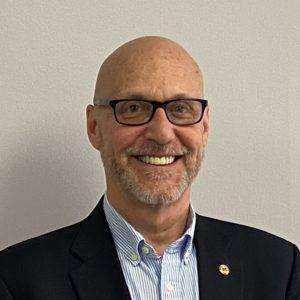Mark Rivett posted July 13, 2021
Read Full Story at the Ford School
Two Ford School student fellows have been selected to work with the American Heart Association (AHA) of Metro Detroit to identify best practices for reducing tobacco usage among high school student populations. AHA, the world’s leading nonprofit organization focused on heart and brain health for all, has partnered with the Ford School of Public Policy to assist in the research and development of Michigan’s ‘Tobacco in Schools’ policies.
Brenna Gross (BA ‘22) and Arron McDonald (BA ‘22) have been selected as U-M student Tobacco in School Elimination fellows and are working together to examine best practices and current research to identify ways to reduce tobacco use among student populations. Gross and McDonald work under the direct supervision of DeAndre’ J. Calvert, Community Engagement Manager at the Ford School’s Program in Practical Policy Engagement’s (P3E) and AHA’s Community Impact Director Michael Randall.
Randall says, “The partnership with the Ford School is invaluable to our efforts to ensure public schools in Michigan are supporting students suffering from tobacco and vaping addiction. Brenna and Arron bring a fresh perspective to our work and have been essential to our strategy as it relates to engaging schools and providing policy recommendations. I look forward to continuing this partnership for many years to come.”
LaSonia Forte, Associate Director of State Outreach, launched this collaboration between the American Heart Association and the Ford School of Public Policy.
Category: All News and Events, Engagement 2021, State News and EventsComments Off on Ford School assists American Heart Association of Southeastern Michigan on ‘Tobacco in Schools’ policies
Mark Rivett posted July 1, 2021
Read Full Article on Michigan News
Like many regions across the country, southwestern Michigan is preparing for the closure of a nuclear power facility, the Palisades Nuclear Power Plant.
The impact of this transition on a community can lead to reduced tax base, lost employment, reduction in services and an unused site. The Economic Growth Institute at the University of Michigan and local partners are responding to craft a new vision, strategy and plan that will lower the risk for and severity of such outcomes while driving renewal and growth after the facility’s planned closing next year.
EGI is working alongside Kinexus Group in partnership with the Southwest Michigan Planning Commission to tackle this transition. The SWMPC views the effort as an opportunity for its counties along Lake Michigan to take stock of the region’s many assets and collaborate on a plan of action.
EGI’s resources and expertise will support the community as they chart their economic future. This will include research and community engagement to drive the development of an economic recovery strategy ahead of the closure of the nuclear facility. Facilitating inclusive planning, EGI will create a blueprint for recovery.

Steven B. Wilson; Senior Research Program Officer, Director of Innovation Services and Associate Director of the Economic Growth Institute at the University of Michigan
“We are excited to be part of this partnership and really commend the local leaders in southwestern Michigan for being proactive in their planning to reduce the impacts of this plant closure on the communities and businesses,” said EGI Director Steve Wilson. “If not addressed, the region could face significant losses. We are looking forward to engaging with community stakeholders to ensure a successful strategy is defined and implemented to keep the region vibrant.”
Category: All News and Events, Community News and Events, Economic Growth Institute, Engagement 2021, State News and EventsComments Off on U-M’s Economic Growth Institute joins effort to ease disruption from nuclear facility closure
Mark Rivett posted June 23, 2021
Read More on the Record
The University of Michigan will extend the Go Blue Guarantee — its landmark promise of four years of free tuition for qualifying Michigan residents — to the Dearborn and Flint campuses.
Beginning this fall, full-time, high-achieving in-state undergraduate students attending UM-Dearborn and UM-Flint will automatically qualify for the award if they have a family income of $65,000 or less and assets less than $50,000.
The Board of Regents voted June 17 to broaden the commitment to the two regional campuses during its meeting to determine the 2021-22 fiscal year budget. The expansion will not change the aid provided to students on the Ann Arbor campus.

Mark Schlissel: University of Michigan President
“Our budget supports the families of our state and the academic excellence of our students by promising that outstanding students who work hard in their studies will be able to afford a Michigan education — on all three of our campuses,” President Mark Schlissel said. “I thank the many individuals in our community whose passion and commitment to affordability have helped us achieve this moment in the great history of the University of Michigan.”
The expansion to Dearborn and Flint will include budgetary support from the Ann Arbor campus for at least six years as the programs become established, and the guarantee will be a focus of fundraising in the years ahead.
Read More on the Record
Category: All News and Events, Ann Arbor, Community News and Events, Engagement 2021, State News and EventsComments Off on U-M extends Go Blue Guarantee, $15 minimum wage to all campuses



